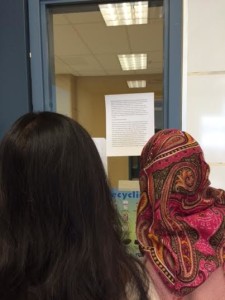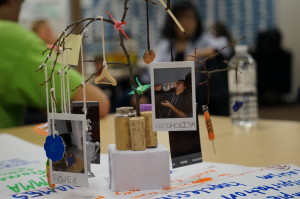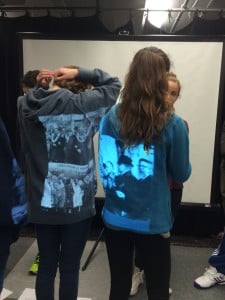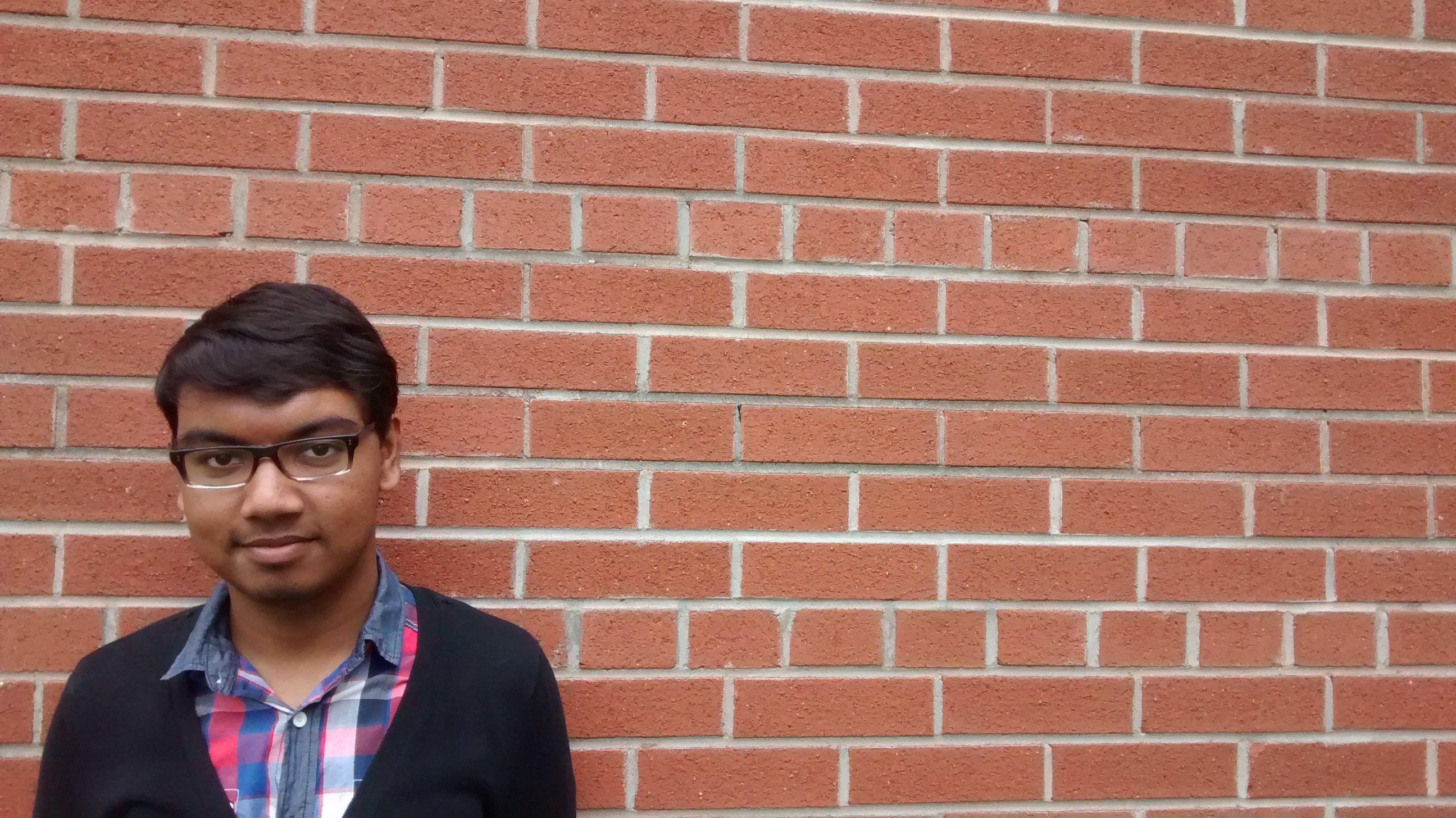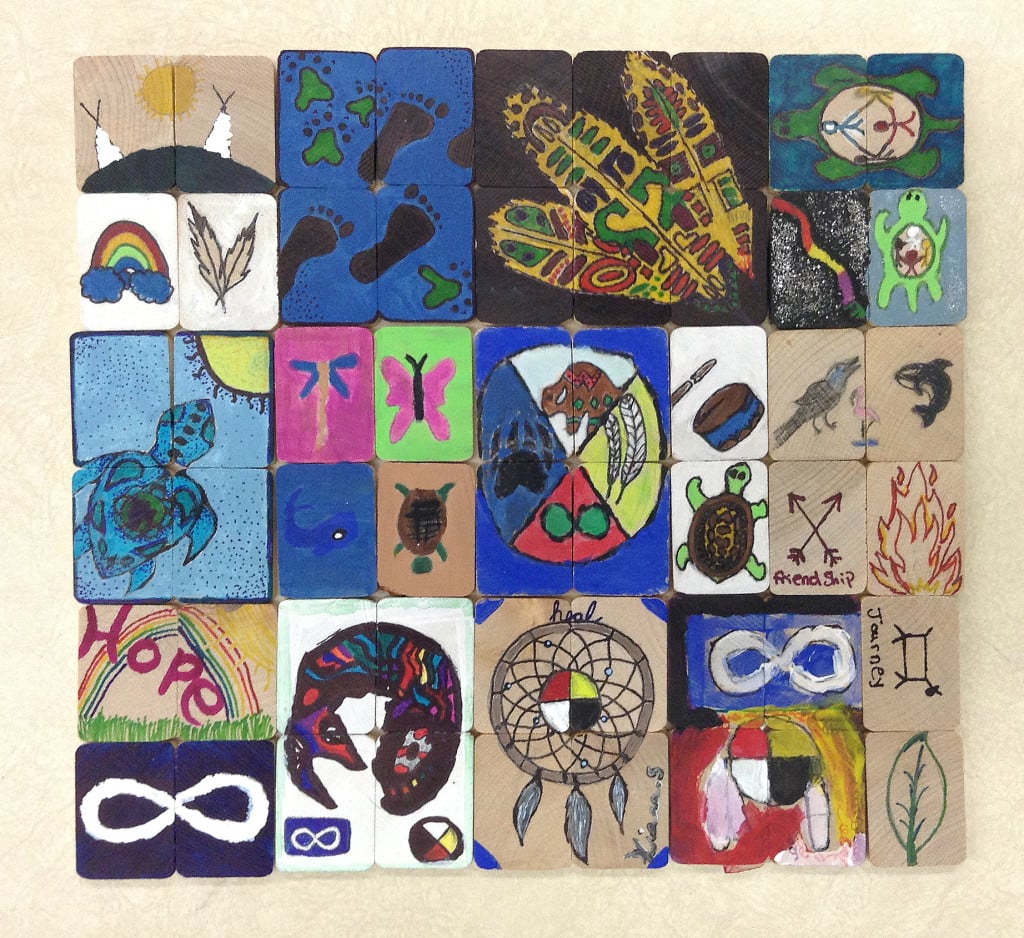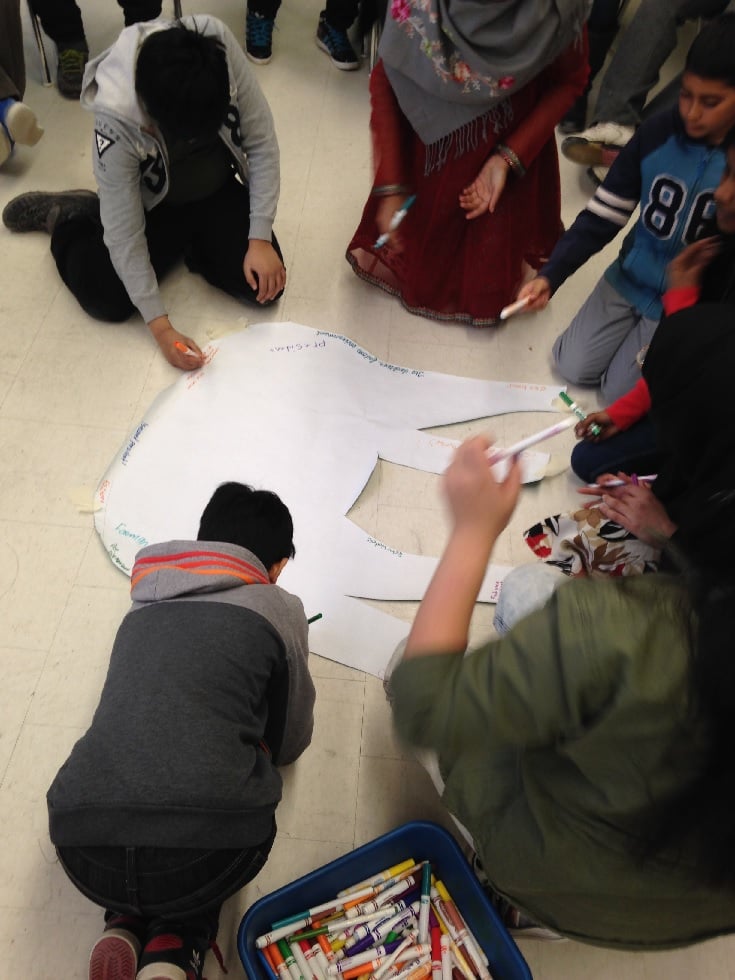Each year, like all educators, I think about new culminating activities that are meaningful and engaging. Inspired by Humans of New York on Facebook, I thought this concept would fit well into my Grade 11 Genocide and Crimes against Humanity course. In fact, the more posts I read, the more I realized how closely aligned they are to Facing History’s Scope and Sequence.
Humans of the Woodlands: Choosing to Participate through Blogging and Photography
Posted by Alysha Groff on April 21, 2016
Topics: Art, Choosing to Participate, Identity, Culturally Responsive and Relevant Pedagogy, reflection
Using Facing History and Ourselves Resources and Pedagogy to teach the Grade 12 Secondary School Literacy Course
Posted by Lesa Smith on March 22, 2016
Having been an LTO (Long term occasional teacher) in the TDSB (Toronto District School Board) for several years I have taught a variety of courses with little prep time available; Facing History saved me more than a few times with their resources (and of course other teachers' contributions to this very blog). I'm delighted to be able to share some of my experience using and adapting Facing History and Ourselves resources and pedagogy in my classroom.
Topics: Film, Choosing to Participate, Human Rights, Facing History Resources, News, Identity, Facing History and Ourselves, current events, Culturally Responsive and Relevant Pedagogy, Literature Circles, Lesson Ideas, In the news, English Classroom, Social Justice, Literature, Personal history, English
Bringing Indigenous Voices into the Classroom
In December of 2012, I visited the Woodland Cultural Centre and former Mohawk Institute in Brantford, Ontario for the first time. This visit had a lasting impact upon my understanding of the residential school system in Canada. Subsequently I asked myself, how could I further embed Indigenous history into my courses?
Topics: Choosing to Participate, Facing History Resources, History, Canada, Media Skills, Technology, Truth and Reconciliation, current events, Culturally Responsive and Relevant Pedagogy, Indigenous, Lesson Ideas, In the news, Social Justice
Youth and Teachers Respond Collectively to Art Spiegelman's Maus Through Art and Inquiry: An Interview with Professor Rob Simon and Delta Senior Alternative School Teacher Sarah Evis
Posted by Rob Simon on December 21, 2015
In 2015, Dr. Rob Simon, Associate Professor at the Ontario Institute for Studies in Education of the University of Toronto (OISE), and students from his teacher education course partnered with Sarah Evis, a teacher from Delta Senior Alternative School in the Toronto District School Board (TDSB), and her grade 8 students, to study Art Spiegelman’s popular intergenerational Holocaust survivor memoir and graphic novel, Maus: A Survivor’s Tale.
Topics: Art, Books, Antisemitism, Choosing to Participate, Holocaust, Facing History and Ourselves, Innovative Classrooms, Holocaust Education, Middle School, Strategies, Culturally Responsive and Relevant Pedagogy, Night, genocide, Lesson Ideas, big paper, Inside a Genocide Classroom, Social Justice, Personal history
"Love thy neighbour as thyself": Helping students bridge distance in their own communities and beyond
Posted by Emily Weisberg on December 13, 2015
Dictionaries define the word “neighbour” solely based on close physical proximity; we feel close to someone because we live next door, or down the hall, or across the street. But what happens when a connection is needed from someone farther away?
Topics: Antisemitism, Choosing to Participate, Events, Facing History Resources, News, Identity, Facing History Together, Facing History and Ourselves, current events, We and They, Culturally Responsive and Relevant Pedagogy, Lesson Ideas, In the news
Stolen Lives: The Indigenous Peoples of Canada and the Indian Residential Schools.
Posted by Leora Schaefer on November 26, 2015
On November 26, we released Stolen Lives: The Indigenous Peoples of Canada and the Indian Residential Schools. This new resource brings educators new primary sources and first-person accounts about a painful period in Canadian history, when about 150,000 Indigenous children were forcibly taken from their families and stripped of their language, culture, and traditions.
Topics: Human Rights, Facing History Resources, Identity, Facing History and Ourselves, History, Canada, Racism, current events, We and They, Culturally Responsive and Relevant Pedagogy, genocide, legacy, In the news, English Classroom, Social Justice
As an educator I often wonder what students remember once they have left my classroom. It is my hope that when they leave they take with them critical thinking skills, the ability to engage in difficult conversations, and a deeper understanding of how we are all connected - in the past, present, and future. Through all of my various attempts to learn from my students what they are getting out of their Facing History and Ourselves class, I have found that the best way to find out what students are learning is to ask them.
Each year, at the end of our grade 11 elective Facing History and Ourselves course, Genocide and Crimes Against Humanity, we take the time to reflect on our learning and ourselves. This year a group of students from my classroom chose to participate in a reflective interview process in lieu of their final journal entry assignment, and agreed to share their reflections.
Below, as inspired by the popular blog Humans of New York and the Facing History project, Humans of the Woodlands, you'll have the chance to glimpse into the classroom learning and life of a few of my Facing History and Ourselves students.
Topics: Choosing to Participate, Identity, History, Holocaust Education, Memorial, We and They, Culturally Responsive and Relevant Pedagogy, legacy, Genocide and Crimes Against Humanities Course, Holocaust and Human Behaviour, Inside a Genocide Classroom, Social Justice, Personal history, reflection
We are very happy to welcome the voice of student Anmol Sandhu to the Facing History and Ourselves Ontario Network blog this week as she reflects on the power of choosing to participate.
Topics: Choosing to Participate, Identity, Media Skills, current events, We and They, Culturally Responsive and Relevant Pedagogy, Genocide and Crimes Against Humanities Course, CHG, Social Justice
Six years ago, Prime Minister Stephen Harper made a public apology on behalf of all Canadians for the residential schools the government of Canada created in the 19th century that plagued the fabric of Canadian history for generations to come. Between 1880 and 1996, more than 150,000 First Nations, Inuit, and Métis children were forced into Indian residential schools and thousands did not survive. Those that did survive suffered a loss of language, culture, family, and self. Many suffered abuse at the hands of those who were supposed to care for them.
Topics: Art, Choosing to Participate, Human Rights, History, Innovative Classrooms, Memorial, We and They, Culturally Responsive and Relevant Pedagogy, Social Justice
Voice, Reward, and Expectations: Reflections on a Middle School Classroom
Posted by Ariel Vente on March 20, 2014
As elementary schools have just passed the mid-point of the school year, I’ve taken some time to reflect on the first half of the year. Schools are part of a larger educational system. However, our classrooms are also a microcosm of society; a community of members with jobs to do, and rules, norms and expectations, which members are expected to follow. But, as we are too well aware, within the larger society, we encounter issues of unfairness and injustice. I’ve been questioning my practice and asking myself: Does my classroom parallel the oppressions of our society? Am I reinforcing and reproducing what is happening in the larger society in my classroom?
Topics: Professional Development, Identity, Urban Education, Regent Park, Middle School, Culturally Responsive and Relevant Pedagogy, Social Justice, Deficit Thinking, reflection


